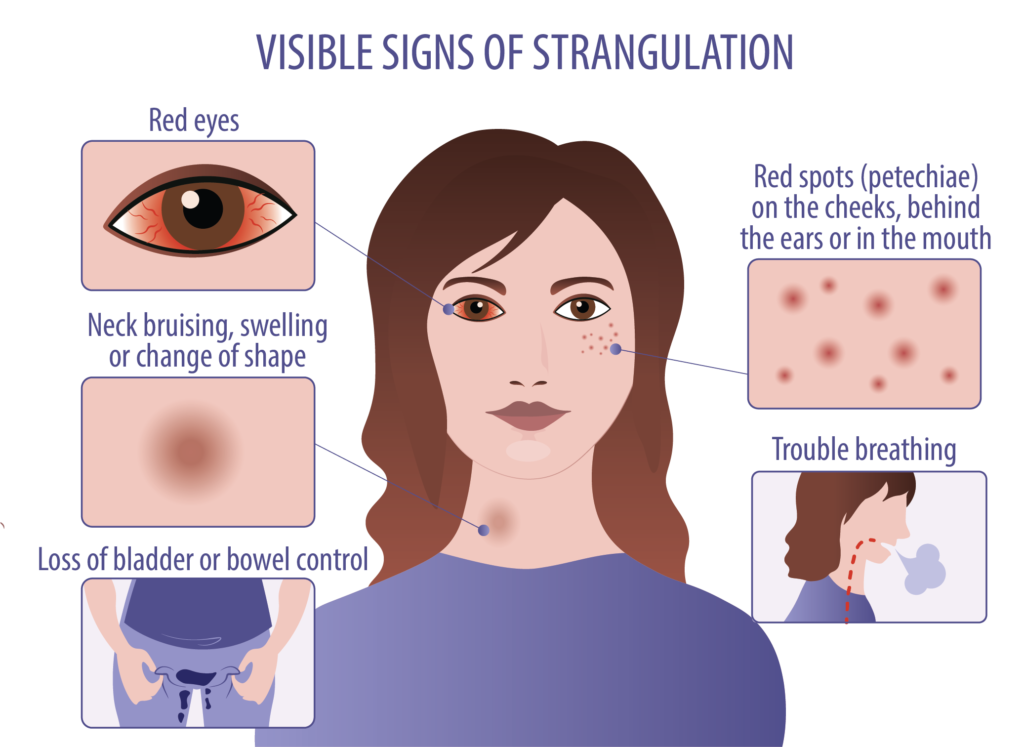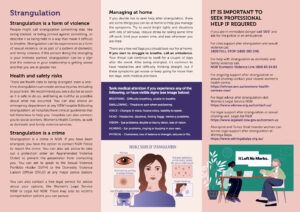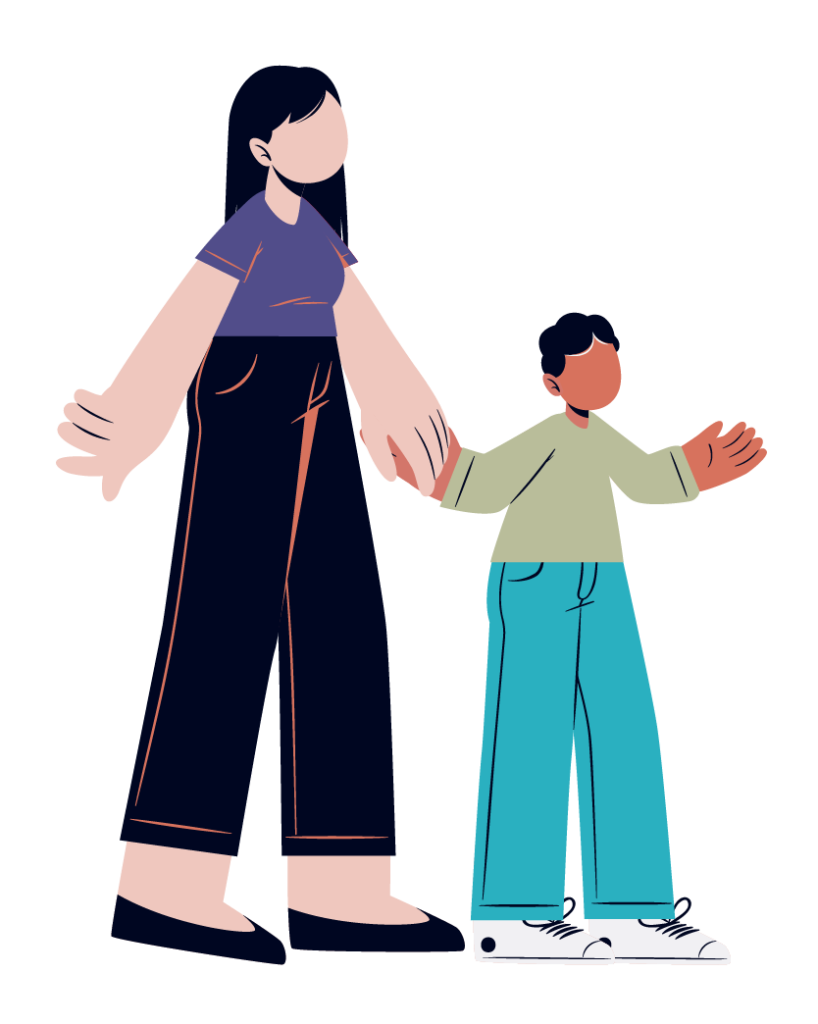We are guessing you have landed here because you or someone close to you has experienced strangulation. They might call it something else, like being choked, suffocated, or being pinned against something, or describe being held in a way that made it difficult for them to breathe or in a way that stopped blood flow to their brain.
Strangulation is a form of violence
Strangulation can be experienced as a form of sexual violence, or as part of a pattern of domestic and family violence. Strangulation is an abusive behaviour that people who use violence usually do to make their victims and survivors feel afraid and fearful of dying. If the person doing the strangling is your intimate partner, strangulation can be a sign that the violence in your relationship is getting worse and that you are at greater risk of being killed by them in the future.
Health and safety risks
There are health risks to being strangled: even one-time strangulation can create serious injuries, including to your brain. We recommend you see a doctor as soon as it is safe to do so, and that you are as truthful as possible about what occurred. You can also attend an emergency department at any NSW hospital following strangulation: all hospitals have clinical guidelines that tell them how to help you. Hospitals can also connect you to social workers who can help you to establish a safety plan. Women’s health centres can also help with this, as can domestic and family violence services. There are plenty of services ready and waiting to help.
Strangulation is a crime
Strangulation is a crime in NSW. If you have been strangled, you have the option to contact NSW Police to report the crime. You can also ask police to take out a protection order (an Apprehended Violence Order) to prevent the perpetrator from contacting you. In every police local area command (LAC), there are particular police officers who have been specially trained to work with victims and survivors of domestic, family and sexual violence. You can ask to speak to the Sexual Violence Portfolio Holder (SVPH) or the Domestic Violence Liaison Officer (DVLO) at any major police station.
You can also contact a free legal service for advice about your options, like Women’s Legal Service NSW or Legal Aid NSW. There may also be victim’s compensation options you can pursue.
Managing at home
If you decide not to seek help after strangulation, there are some things you can do at home that might help you manage the symptoms. Try to avoid bright lights and situations with lots of stimulus, reduce stress by taking some time off work, limit your screen time, and rest whenever you are tired.
There are a few red flags you should look out for at home. If you start to struggle to breathe, call an ambulance. Your throat can continue to swell for a couple of days after the event. After being strangled, it’s common to have headaches and difficulty thinking straight, but if these symptoms get worse or keep going for more than ten days, seek medical attention. Having visible signs of strangulation can mean there are also internal injuries that should be checked out.

This SOS card outlines the signs and symptoms that NSW Health believe warrant medical attention.
Who can I talk to about strangulation?
Women’s health centre staff across NSW have been trained to provide you with support and care after strangulation, including helping you to navigate health, safety, and legal responses. Find your closest women’s health centre here: https://whnsw.asn.au/womens-health-centres-nsw/
It Left No Marks brochure for women
 This printable brochure contains information on strangulation on one side, and sexual choking on the other side. Sometimes you might experience both from the same partner: https://www.itleftnomarks.com.au/resources/it-left-no-marks-brochure-for-women/
This printable brochure contains information on strangulation on one side, and sexual choking on the other side. Sometimes you might experience both from the same partner: https://www.itleftnomarks.com.au/resources/it-left-no-marks-brochure-for-women/
We are also in the process of making some extra resources to help. In the meantime, we have collected some things you can watch, listen to, or read.
Things to watch, listen to, or read
WATCH: Head injuries and strangulation hurt your brain https://www.odvn.org/brain-injury-survivors/
WATCH: Experts warn of the dangers of consensual strangulation during sex https://www.abc.net.au/news/2024-07-02/the-dangers-of-consensual-strangulation-during-sex/104050844
READ: Strangulation during sex: Not a kink https://missingperspectives.com/posts/strangulation-during-sex/
READ: Women and sexual violence law https://www.wlsnsw.org.au/resources/women-and-sexual-violence-law/
LISTEN: The last warning shot: Family violence and strangulation https://www.abc.net.au/listen/programs/lawreport/law-report-26-february-2019/10845054
